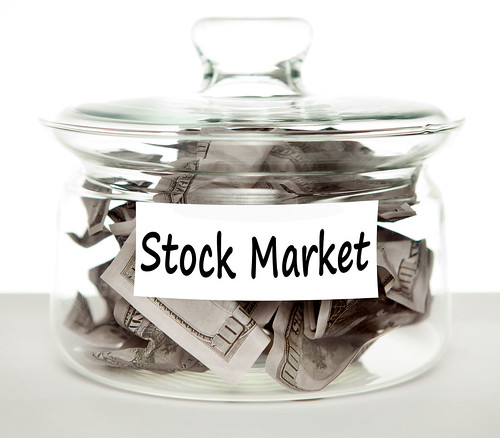If you have some extra money saved up, you may be hesitant to put it in the stock market simply because you’re not sure what to do, when to buy and sell, and you could be worried about losing it. Although it might be scary at first, the stock market can be a great tool to help you increase your cash and help you reach your long-term financial goals. If you take the time to learn about the stock market and trading, you’ll be able to jump in with confidence.
Have a Diverse Portfolio
The first thing you should learn about the stock market, and any financial ventures, is to not put all your eggs in one basket. Nobody’s perfect, and sometimes things happen in the stock market that is unexpected. If you have your money spread out in different areas, you’ll be much less likely to be significantly impacted by those kinds of changes. You should have money in multiple stocks, but you probably want to split your money between stocks and bonds as well in order to keep your money as financially secure as you can while still making the high rates you can get out of the market.
If you want to put your money in lots of different companies, but don’t want to go through the work of finding them all, index funds can make it simple on you. They essentially split up your money for you and invest little bits of it into lots of different accounts, and can be quite profitable. They usually carry fees, but it can be worth the money to save the hassle and stress of figuring it all out yourself.
Stay Balanced
If you invest your money yourself, you’ll notice that over time, one stock or bond will do better than another and will become a larger percentage of your portfolio. When this happens, it’s a good idea to even things out by selling shares of the higher-performing portfolio area and put it into the lower-performing one. This is essentially a form of “buying low, selling high.” Basically, if you put your money into stocks and bonds, with 50% in each, but the bonds over-perform and increase to 60% of your portfolio, you should take enough out of bonds and put it your stocks so they get back to the 50/50 balance you started with.
Make Good Choices
Before you throw your money into the stock market, take some time to look at past returns and levels of payout versus risk so you know what you’re getting into. You may even want to take a couple of classes or put your money in with a stock broker or mutual fund if you’re very uncomfortable making the necessary decisions. Only after you’ve done the research and you know what you want should you buy shares or give your money to a company to buy for you.
Stick to Your Decisions
While it’s not good to completely ignore what’s going on with your money and just hope for the best, changing your money around constantly based on the minor fluctuations of the market will not help you, will often hurt you, and will cause undue stress. If you made smart decisions in the first place, you should only need to check on your portfolio once a month or so to rebalance as necessary and otherwise just leave it alone.
Getting into the stock market for the first time can be frightening, but if you figure out what you want, the amount of risk you’re willing to take on, and the basic workings of the stock market, you’ll find that a well-developed portfolio can lead to more wealth and the fast lane to your financial goals.
Jeannette Frost writes for several financial blogs and suggests you learn how to trade stocks online.
The post What to Know Before You Dive into the Stock Market appeared first on Insider Business Reviews.
